On Tuesday, President Obama will be handing out the Presidential Medal of Freedom, the highest civilian honor in the U.S. The list of winners this year brims with both household names and virtual unknowns — artists, athletes and activists of just about every stripe.
With 17 winners, there are 17 personal histories, 17 highlight reels of accomplishments — and 17 stories of service worth recognizing. Inspiring, sure, but also quite a bit of homework for the average American looking to learn more about the honorees.
So, NPR's here to help. Click a name on the list below to find a brief introduction to the life and works that helped define a legacy — and more often than not, a conversation with the actual person. Because who better to tell you who these people are than the folks themselves?
Medal Of Freedom Winners
Yogi Berra
Bonnie Carroll
Shirley Chisholm
Emilio Estefan
Gloria Estefan
Billy Frank Jr.
Lee Hamilton
Katherine G. Johnson
Willie Mays
Barbara Mikulski
Itzhak Perlman
William Ruckelshaus
Stephen Sondheim
Steven Spielberg
Barbra Streisand
James Taylor
Minoru Yasui
Yogi Berra
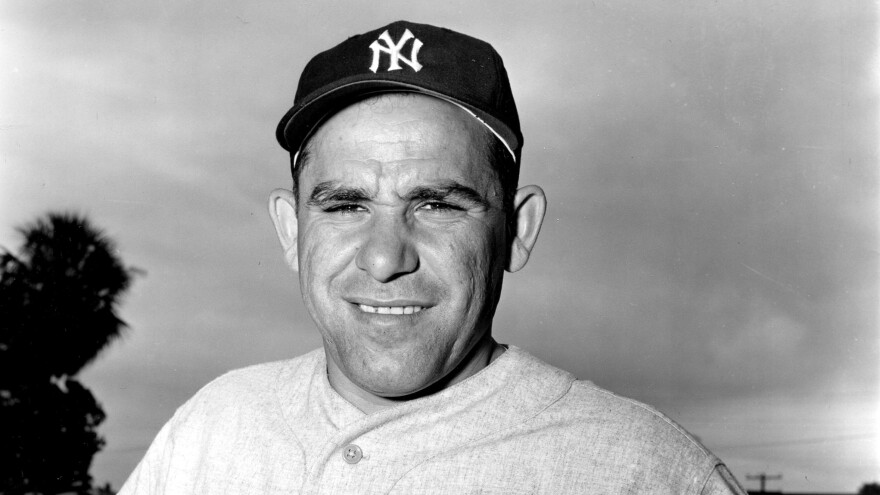
Berra, that master of the bat and malapropisms, won 10 World Series championships — more than any other major league player — and spent four decades as a professional catcher, manager and coach. Born Lawrence Peter Berra, Yogi was also named league MVP three times in the course of his career. He died earlier this year at the age of 90.
He also was widely known for his twisty turns of phrase, which managed to mine wisdom from apparent nonsense — stuff like "it ain't over till it's over," and "when you come to a fork in the road, take it." He was also quite the conversationalist on the diamond, apparently, which wasn't always appreciated by batters such as Ted Williams.
"Oh, he would get mad," Berra told NPR's Robert Siegel in 2003. "You know, I used to say, 'Where you going tonight, Ted? What are you doing? When you going fishing?' And he'd say, 'Shut up ... I'm up here to hit, not to talk about fishing or hunting.' "
Bonnie Carroll
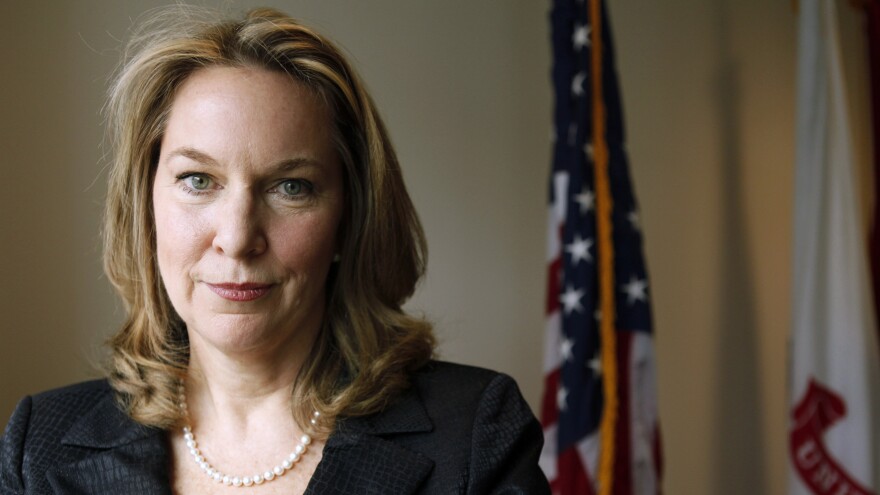
Carroll, a retired major in the Air Force Reserve, founded the Tragedy Assistance Program for Survivors, or TAPS, an organization that provides support for those affected by the death of a loved one serving in the U.S. armed forces. Carroll started the group after her husband, Brig. Gen. Tom Charles Carroll, died in a plane crash in 1992.
Since its founding, TAPS has stepped in to help survivors cope with grief and feelings of guilt — and seeks to prevent suicide with therapy and mental health treatments.
Shirley Chisholm
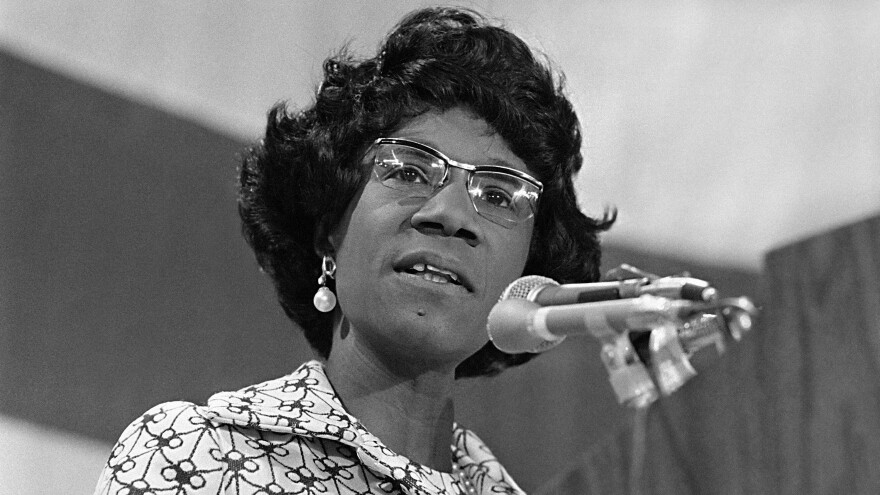
Running behind the slogan "Unbought and Unbossed," the New York Democrat won her first term in the House in 1968, becoming the first black woman elected to Congress. But she didn't stop there: In 1972, Chisholm undertook a bid for the presidency. That campaign made her not only the first African-American woman, but the first African-American to run for a major-party presidential nomination in the U.S.
She lost her party's nomination to Sen. George McGovern that year, but she continued to serve in Congress for another decade, during which she also became a founding member of the Congressional Women's Caucus. Chisholm died in 2005.
Perhaps Chisholm described herself best when she told NPR's Tavis Smiley, in 2003: "I was very outspoken, very articulate, and I wouldn't take any guff from anybody."
Emilio Estefan
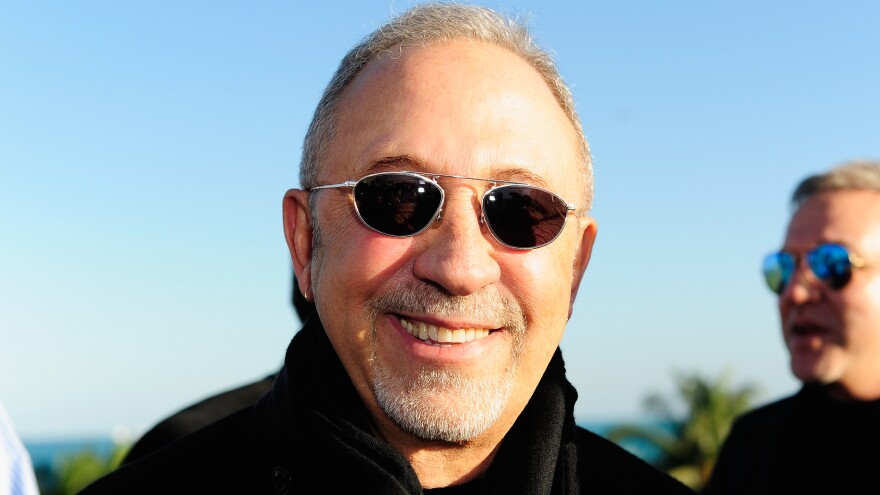
The multiple Grammy winner, who is married to fellow Medal of Freedom winner Gloria Estefan, built a music empire rooted in Miami. The founding member of the group Miami Sound Machine — which also featured Gloria — Estefan made his name as a producer and songwriter foremost. He also created his own label, Crescent Moon Studios.
"What Emilio Estefan has done in this country to promote Latin music is without dispute," said Mauricio Abaroa, the executive vice president of the Latin Academy of Recording Arts & Sciences, in 2000. "As a producer, as a composer, as a manager, he is one of the greatest ambassadors we have ever had."
Gloria Estefan
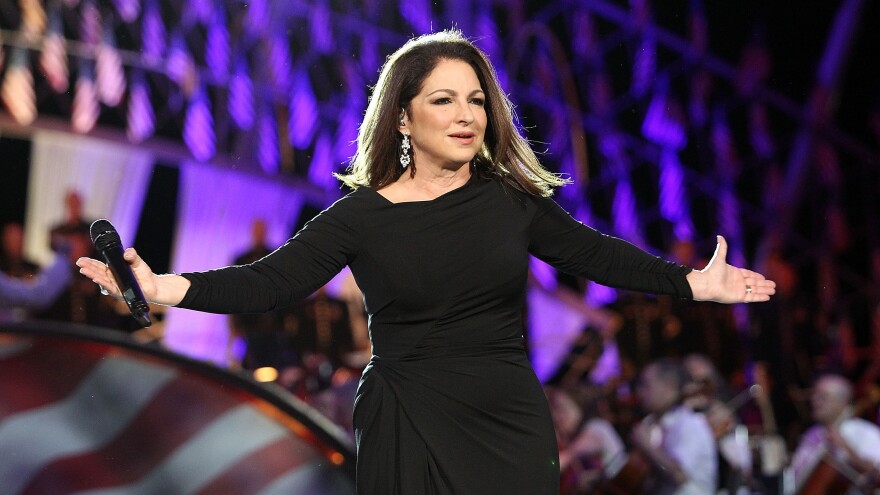
Gloria Estefan rose to prominence at the head of Emilio Estefan's band, the Miami Sound Machine. By the '80s and '90s, the singer was in the vanguard of the booming Latin music scene. Now, decades and dozens of albums later, Estefan is still performing and recording.
But at the start, Gloria Estefan told NPR's Rachel Martin in 2013, it wasn't so easy.
"They would say you're too American for the Latins; you're too Latin for the Americans; lose the drums; lose the percussion; change your name," Estefan said. "And the fact that we had this fresh, different sound, and that we stuck to it, is the reason we had success. So, we were very happy that we were our own cheerleaders."
Billy Frank Jr.
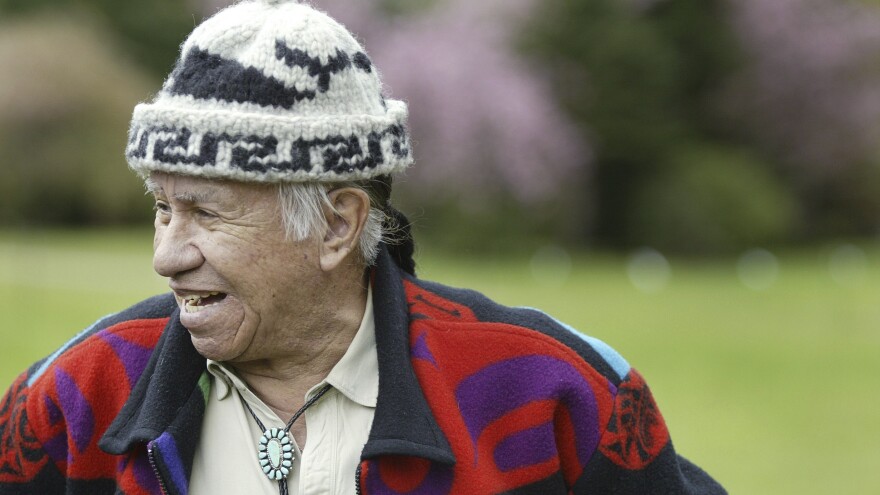
Born on a Nisqually reservation in Washington state, the Native American activist resisted state fishing regulations in the 1960s and early '70s, arguing that the imposed laws violated 19th-century treaties signed between the U.S. and Native Americans. Frank was arrested numerous times, and his argument was eventually upheld by the Supreme Court in the mid-'70s.
In the decades after, he continued to help lead efforts for Native Americans' rights and environmental conservation in the Pacific Northwest — efforts for which he was recognized with the Albert Schweitzer Award and the Martin Luther King Jr. Distinguished Service Award for Humanitarian Achievement.
Frank died last year at the age of 83. At the time, The Seattle Times put together an interactive timeline of Frank's life — including his efforts during the "salmon wars" in the '60s and '70s.
Lee Hamilton
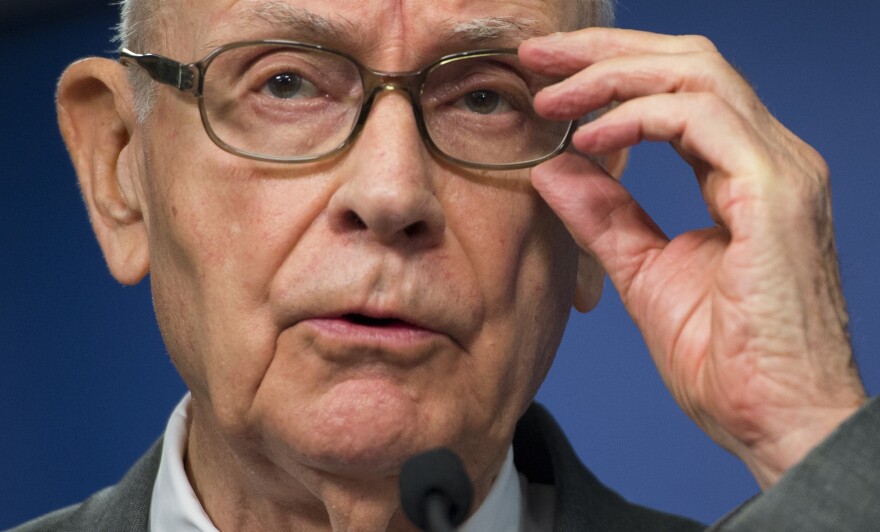
Hamilton spent decades in public service. First elected to Congress in 1964, the Indiana Democrat served in the House until 1999 — including a notable stint in the '80s as chairman of the Select Committee to Investigate Covert Arms Transactions with Iran, otherwise known as the Iran-Contra committee. After retiring, he kept going: Hamilton was vice chairman of the 9/11 Commission in the wake of the 2001 terrorist attacks.
Still, despite his decades in government as a widely respected voice in foreign policy, Hamilton told NPR's Steve Inskeep in 2010 that one thing, especially, left an impression on him:
"I think that you come filled with ambition and drive and energy and wanting to accomplish great things, and you find the system is very hard to move, to make it work," he said. "And I think what has impressed me over the years is the sheer complexity and difficulty of governing this country."
Katherine G. Johnson
A research mathematician for NASA in its earliest years, Johnson worked on projects such as calculations for interplanetary trajectories. Her calculations were behind the space flight of Alan Shepard — a first for America — and the Earth Resources Satellite.
"Early on, when they said they wanted [Shepard's] capsule to come down at a certain place, they were trying to compute when it should start," Johnson told NASA's news service in 2008. "I said, 'Let me do it. You tell me when you want it and where you want it to land, and I'll do it backwards and tell you when to take off.' That was my forte."
Throughout her career with NASA, Johnson helped pave a path for African-American women in the space program. She is 97.
Willie Mays
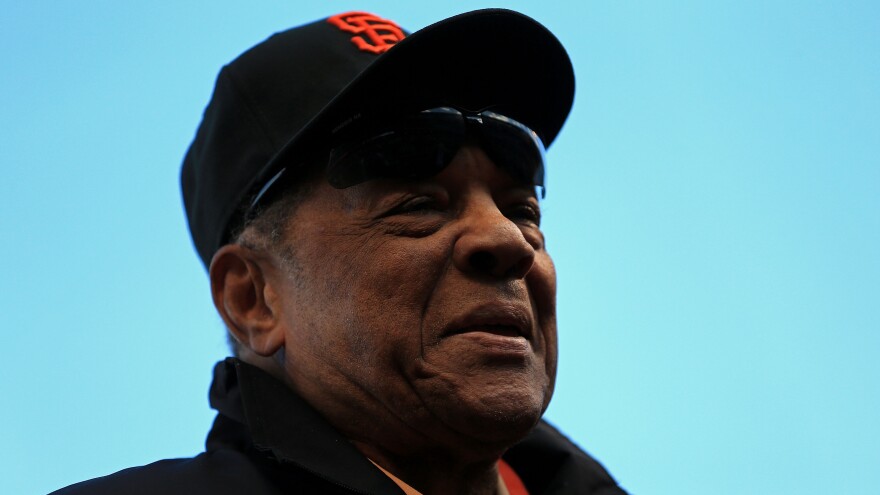
The Say Hey Kid was an outfielder for the New York and San Francisco Giants for more than two decades. The Hall of Famer's feats on the baseball diamond — including one legendary catch in the 1954 World Series — provided ample fodder for photographers and plenty of entries in the record books.
Though some question whether he could have owned even more records if he hadn't spent two years in the military during the middle of his career, Mays told NPR's Bob Edwards in 2000 that he doesn't have any regrets about it.
"I'm not a type of guy that look back and says, 'Boy, if I had this, or if I could have did that, I would have been ahead of guys.' I'm fine with what I have, you know," Mays said.
Barbara Mikulski
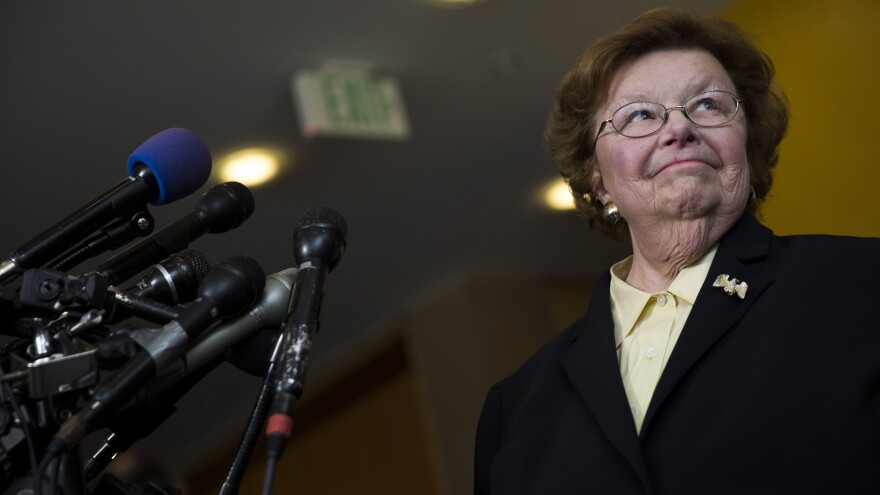
When Mikulski was elected to the Senate in 1986, she roared, "We elected a Democratic woman named Barbara and somebody named Mikulski, and the Senate won't be the same from now on!"
It set the tone for the energetic Mikulski, who was the first Democratic woman to serve in both houses of Congress, the first woman to win a statewide senatorial election in Maryland — and, eventually, the longest-serving woman in Congress, before announcing her retirement earlier this year.
"I am a fighter," she told NPR's Renee Montagne in March. "And when you're going to fight, you have to be specific. You have to be tenacious. You have to be insistent and persistent. And that's what it takes to get the job done."
Itzhak Perlman
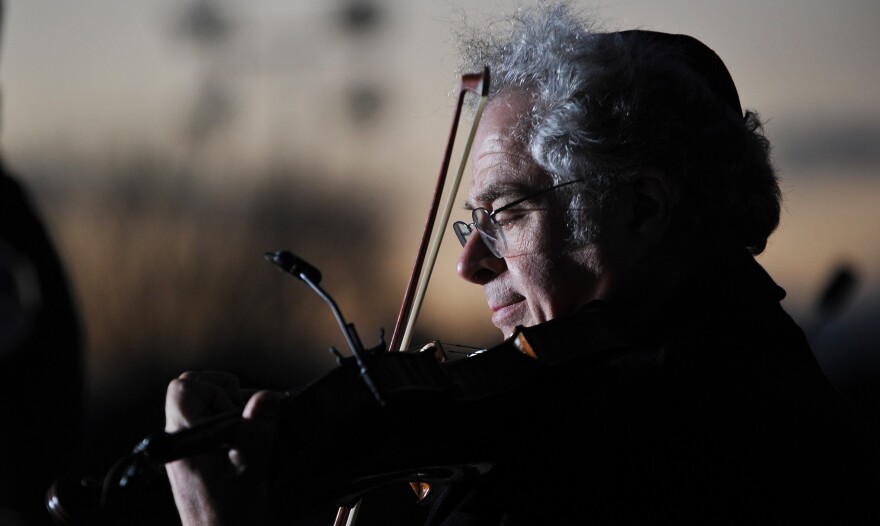
Perlman has been playing the violin since he was 3 years old — which means, for those following along at home, that he's been a violinist for more than 67 years. So Perlman, who was paralyzed by polio at an early age, has decades of material to delve into — including a performance at President Obama's second inauguration and a stop by the set of Sesame Street.
"I always say that my goal is to not be bored by what I do," Perlman told NPR's Steve Inskeep this week. "The only way that I cannot be bored by what I do is if I play something and it's all new to me."
Happily, NPR's Tom Huizenga put together a reel of Perlman's many highlights — such as his first appearance on The Ed Sullivan Show at the age of 13.
William Ruckelshaus
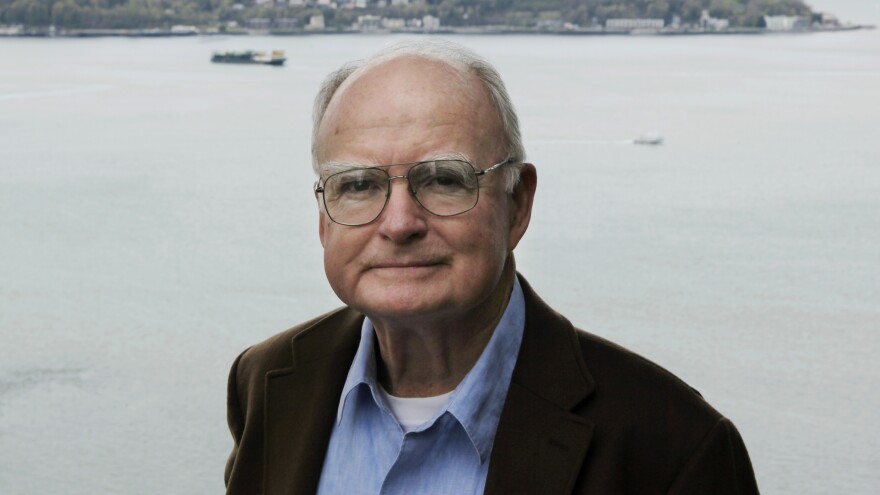
Picked by President Nixon in 1970 to be the first head of the Environmental Protection Agency, Ruckelshaus steered the EPA through the passage of the Clean Water and Clean Air acts in the early '70s. Later, as acting director of the FBI, Ruckelshaus refused an order from Nixon to fire the Watergate special prosecutor, choosing instead to resign in protest. He even returned to the EPA in the mid-'80s, at the request of President Reagan, to help guide the agency during a time of upheaval.
Stephen Sondheim
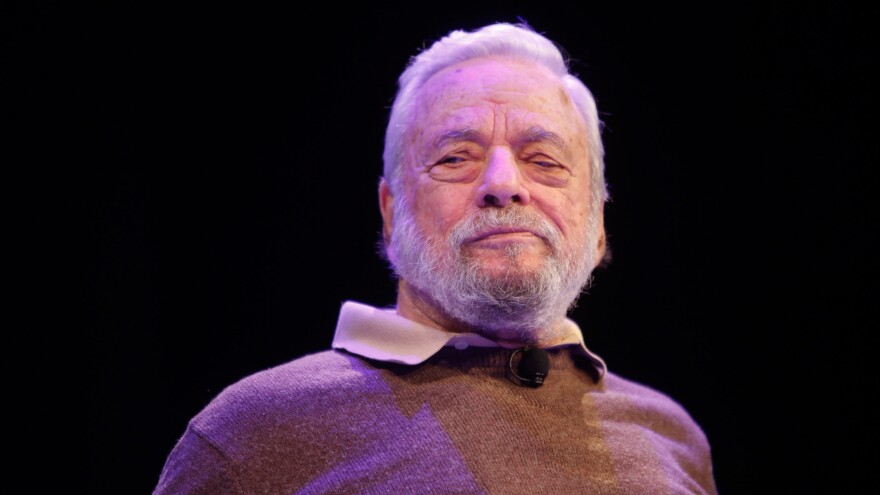
He held the pen behind Sweeney Todd, Into the Woodsand A Funny Thing Happened on the Way to the Forum. He had a hand in Gypsyand West Side Story. He's won Grammys, Tonys, an Oscar and a Pulitzer. And he's at it still, lending his advice and encouragement to the Broadway smash of the moment, Hamilton.
In between performances of his songs such as "Send in the Clowns," Sondheim told Marian McPartland of Piano Jazz a lesson he learned along the way: "That's the whole point, is to keep the listener surprised."
Steven Spielberg
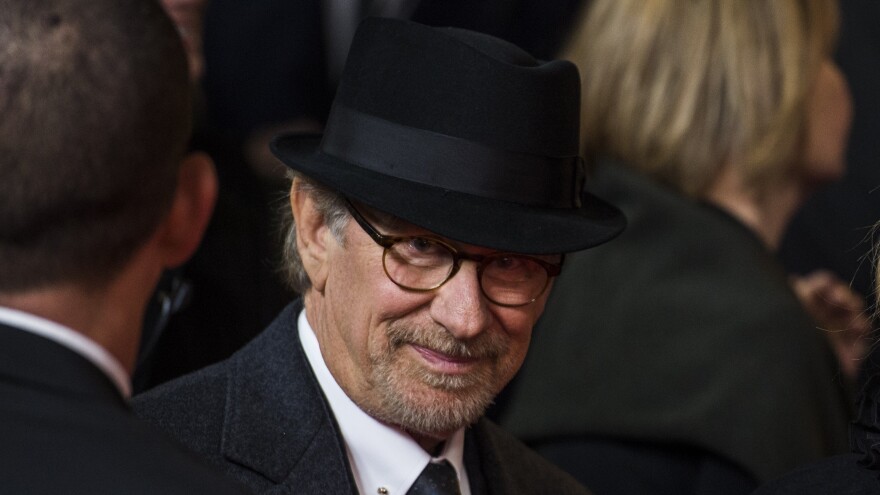
Jaws, Raiders of the Lost Ark, E.T.: the Extra-Terrestrial, Jurassic Park, Schindler's List, Saving Private Ryan-- even if, by some fluke of fate, you haven't heard of Steven Spielberg, you know his movies. The director and producer has won Academy Awards, founded a movie studio — and, remarkably, managed never to be interviewed on NPR's airwaves.
So, I'll just leave this to NPR's Bob Mondello, who recently celebrated the 40th anniversary of Jaws, the film that he says "put Spielberg on the map."
Barbra Streisand
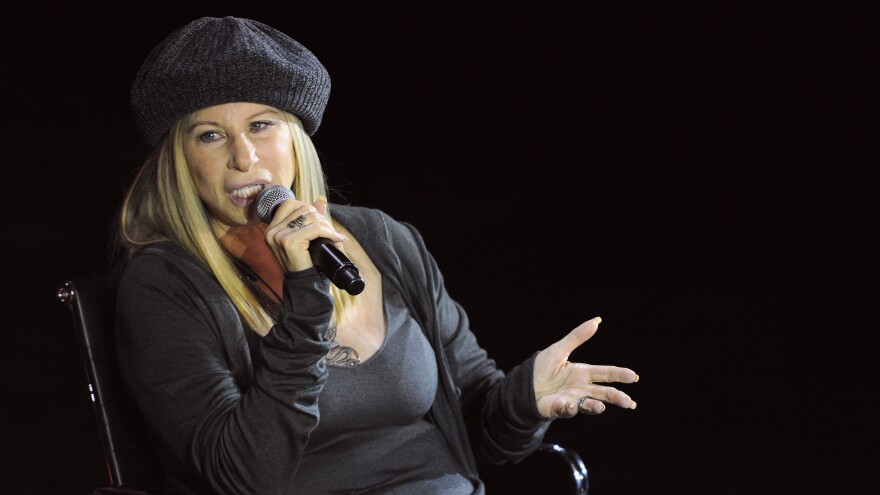
The acclaimed singer and star of Yentland Funny Girlbegan her career as a performer at a nightclub in 1961. The headliner of Broadway hits has since won Oscars, a Tony and plenty of Grammys and Emmys. It's been a long and eventful career, but as she told Fresh Air's Terry Gross in 2012, Streisand is still wondering what comes next.
"You reach a certain age and you wonder, well, do I give it up? Do I retire? Or do I get more in before my time is up?" she asks. "I could just travel around the world. But then I think I'd get bored and I'd need to create. I need to be creative, and time is going so fast."
James Taylor
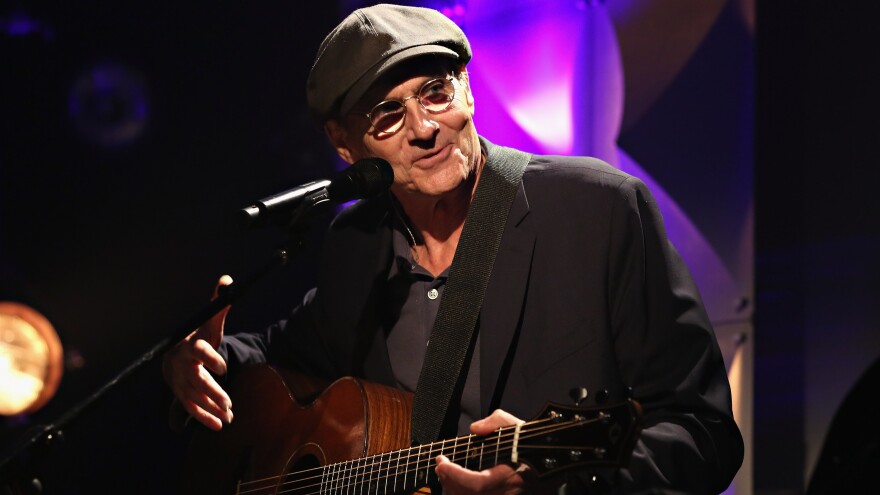
Taylor released his first album in 1968, but it wasn't until Sweet Baby James came out in 1970 that his popular success caught up with his critical acclaim. Since then, he's put out more than a dozen albums and earned Grammys — but "Fire and Rain," the single off that second album, remains one of his best-known works.
Back in 2000, Taylor broke down the song for NPR's Noah Adams.
"It was a great relief. That song relieved a lot of sort of tension. There was things that I needed to get rid of or at least get out of me or get in front of me or at least have some other relationship than feeling them internally, either by telling somebody else or by just putting them out in a form in front of me so that I could say, 'There they are' — you know, externalizing it somehow.
"And that part was hard, having the feelings that needed to be
expressed in that way. But it was actually a relief, like a laugh or a sigh."
Minoru Yasui
At the height of World War II, the U.S. government forcibly placed more than 100,000 Americans of Japanese descent in internment camps and pursued other discriminatory policies such as race-based curfews — out of fear that the Japanese-American population could prove a threat.
Minoru Yasui, then a recent law school graduate, violated the curfew in order to get his case heard in court. "I walked these two or three or four times, as I recall that evening, trying to get arrested," Yasui said — and finally, he had to walk down to the local police department to turn himself in.
That's when his case began. As NPR's Michel Martin reports:
"Ultimately, the case made it all the way to the U.S. Supreme Court, where Yasui lost. Despite that, he continued to work on civil rights cases throughout his life on behalf of Native Americans, Latin Americans, wherever he found injustice. Minoru Yasui died in 1986, too soon to witness a victory he had sought for decades when the U.S. granted reparations to interned Japanese-American families in 1988."
Now, a new recognition of his efforts will be handed down Tuesday — a reminder that it's never too late to honor hard-fought victories.
Copyright 2020 NPR. To see more, visit https://www.npr.org. 9(MDA4MDYxNjY4MDEzMTQ2OTkxMzkyOWU2NQ004))


